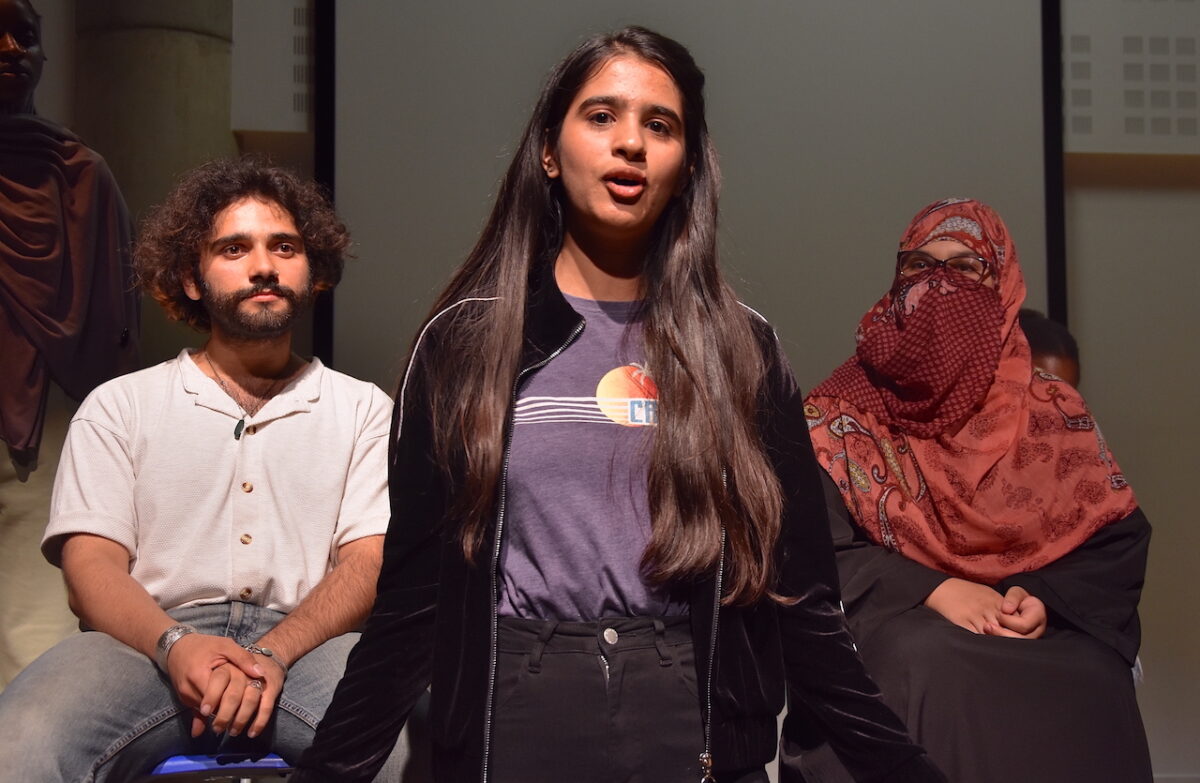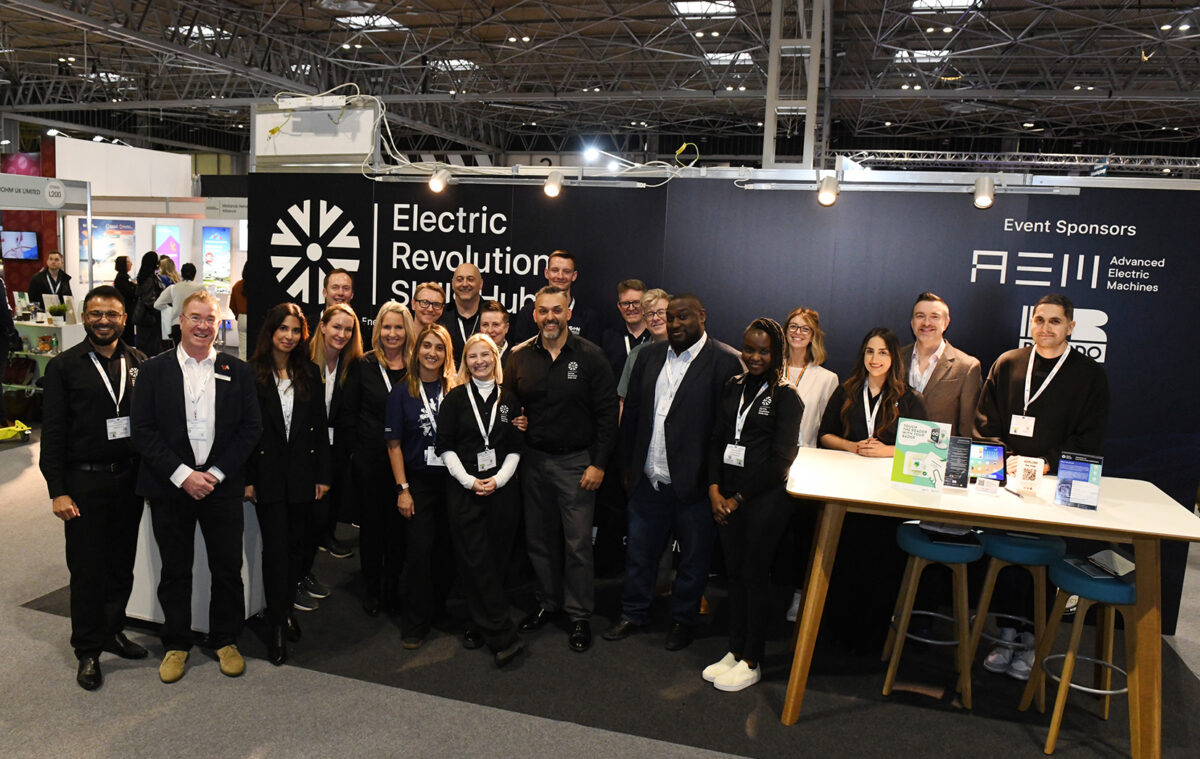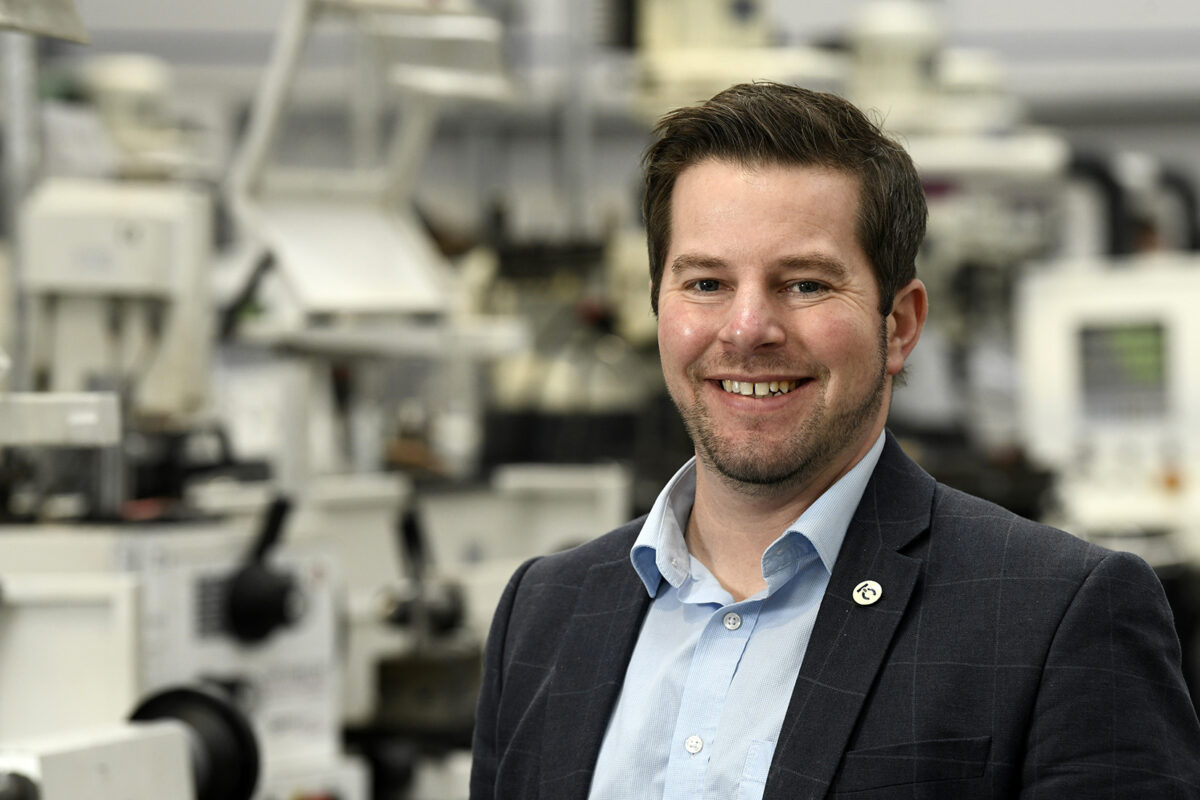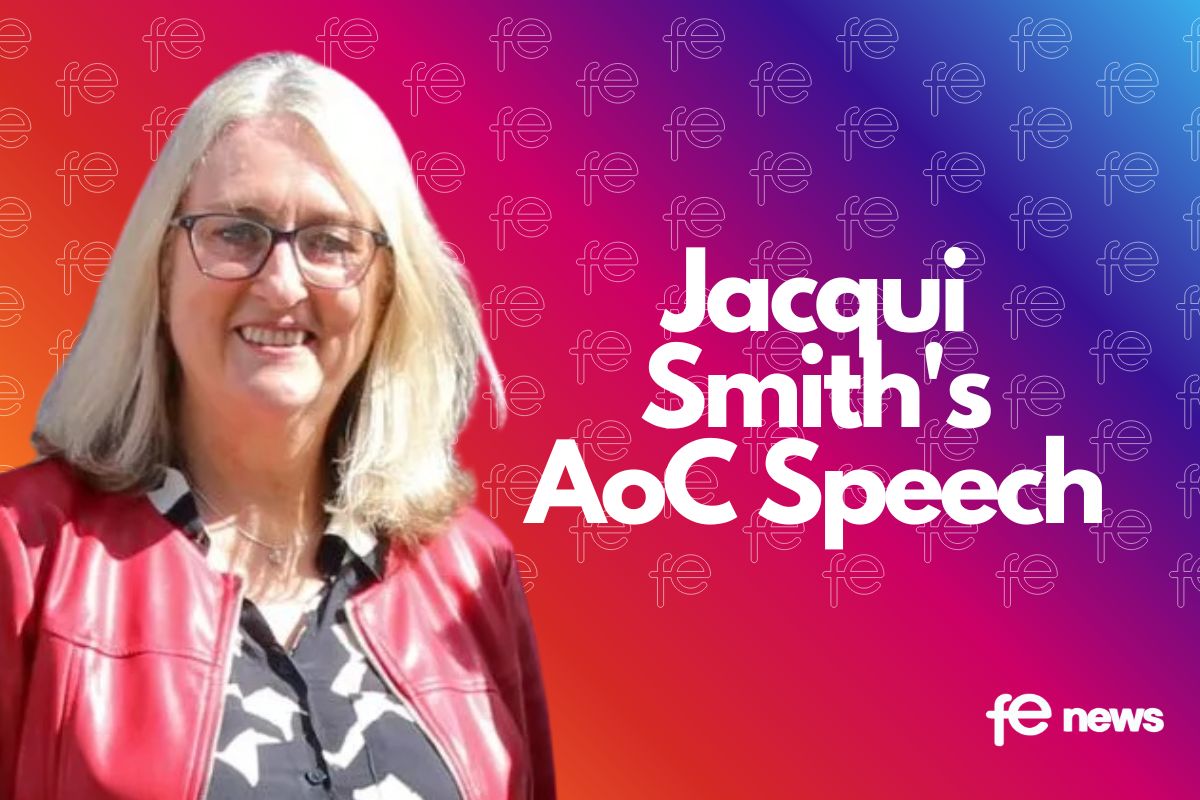Local creatives use digital design skills to protect Plymouth’s wildflower meadows

Signage for wildflower meadows across the city have been created in collaboration with the Smart Citizens Programme and Green Minds project
Digitally fabricated signs designed by local creatives in a workshop led by Plymouth College of Art’s (@plymouthart) Smart Citizens Programme have been installed in wildflower meadows across Plymouth, celebrating and protecting these important areas of urban re-wilding. Co-hosted by Plymouth City Council’s Green Minds project, who are leading a number of re-wilding activities across Plymouth, the workshop supported participants to combine new computer aided design (CAD) skills with their creative talents to design nature-inspired signs. The signs were then laser cut at Fab Lab Plymouth and installed in 24 locations around the city.
During the workshop, students, young people and members of local businesses developed new skills in digital design, learning about the process of laser cutting and how to use the 2D design software, ‘Inkscape’. Drawing inspiration from nature for their designs, participants created fun drawings and messages to raise public awareness about Plymouth’s wildflower meadows and their importance. Far from un-mown grass, the re-wilded meadows planted by Green Minds are vital to support the biodiversity of the city, create new habitats for wildlife and inspire local citizens to connect with nature.
Wildflower meadow sign designed by Eve Newman, first-year UAL Level 3 Extended Diploma Art & Design student at Plymouth College of Art (Photo credit – Ray Goodwin)
Participant Lauren Williams, a first-year UAL Level 3 Extended Diploma in Art & Design student at Plymouth College of Art, draws inspiration from mental health and the natural environment for her artistic practice.
Reflecting on the workshop, Lauren said,
“I had a particular interest in this workshop because it brought together art and the environment, creating a way to raise awareness of the importance of wildflower meadows.
“I enjoyed the process of collaborating with like-minded people, learning a new digital skill through an easy-to-follow tutorial and communicating ideas with my peers. With the knowledge that our work would go towards educating people on the importance of wildflower meadows for bees, butterflies and other beneficial wildlife, without which our pollinators face a dire future, I knew this would be an amazing project to be a part of.
“If we can all take a step towards making choices that benefit the planet, the wildlife and animals that live on it, then we will move towards a better future – start by checking out Green Minds Plymouth for ways on doing just that!”
Lauren Williams with their wildflower meadow sign (Photo credit – Paul Williams)
Local projects collaborate to protect nature
The creation of the wildflower signs marks an ongoing collaboration between the Smart Citizens Programme and Green Minds project, utilising the innovative digital resources at Fab Lab Plymouth and supporting digital skills development in the city to protect Plymouth’s green spaces and reveal hidden nature in the city.
Councillor Patrick Nicholson, Deputy Leader of Plymouth City Council, said:
“It has been great to work alongside local projects to create these fun signs and show people how beautiful and important these wildflower meadows are – not just for people, but for wildlife, too.
“Each wildflower meadow provides a home for so many plants and insects and now we can share this message with communities across Plymouth”
Since their installation, the wildflower meadow signs have been received with enthusiasm by members of the public, demonstrating a clear engagement with Green Minds’ re-wilding aims. Following this public support, a further 60 signs have been commissioned by Plymouth City Council, which will be laser cut at Fab Lab Plymouth and installed in new locations around the city in Spring 2022.
Wildflower meadow sign designed by Genevieve Stewart, second-year BA (Hons) Printed Textile Design & Surface Pattern student at Plymouth College of Art (Photo credit – Ray Goodwin)
Championing sustainable design skills
This workshop joins a number of ‘Nature and Conservation’ themed workshops hosted by the Smart Citizens Programme, which support participants to digitally design and fabricate objects that will benefit wildlife and the environment. Previous events allowed participants to create laser-cut bird houses and assemble Smart Citizen Kit sensors to collect and monitor important environmental data around Plymouth.
In addition to supporting participants to create environmentally-friendly objects, the Smart Citizen Programme also encourages makers to create in more sustainable ways. Connecting local citizens, students, entrepreneurs and businesses with new skills in digital design and fabrication, the programme champions sustainable techniques that are digitally enabled, increasingly local and reduce waste and pollution following the circular economy principles. When designing their signs, participants were introduced to laser cutting, a process that produces minimal waste material.
Bethan Price-Nicholls with their wildflower meadow sign (Photo credit – Ray Goodwin)
Bethan Price-Nicholls, a student who recently completed her first year in BA (Hons) Illustration at Plymouth College of Art, said:
“I love experimenting with new materials and media. While taking part in the workshop I learnt about the laser cutting process, which I had never seen up close before.
“Laser cutting gives a completely different feel to other mediums that I have used in the past. I found the whole workshop to be an eye opener and it was a vital experience for my creative practice, teaching me that there are still many ways in which I can develop and learn. It has also welcomed me to the possibility of expanding my creative practice and really getting out of my comfort zone to try more new things.”
This activity is part of the iMayflower project and has been supported by The Department for Digital, Culture, Media and Sport, who fund the Cultural Development Fund, which is administered by Arts Council England.











Responses